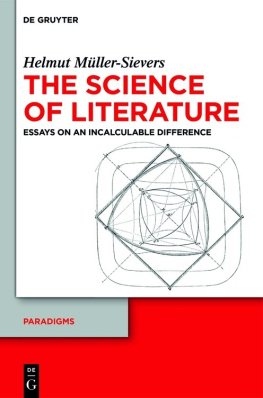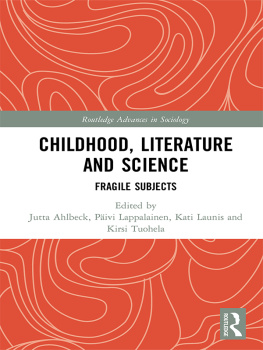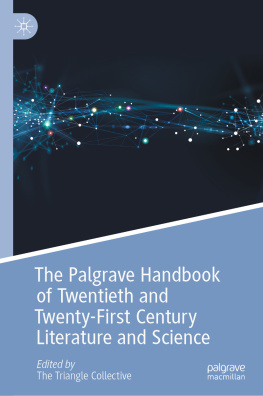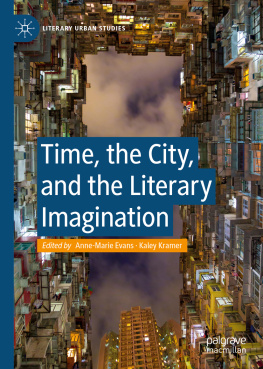Helmut Müller-Sievers - The Science of Literature
Here you can read online Helmut Müller-Sievers - The Science of Literature full text of the book (entire story) in english for free. Download pdf and epub, get meaning, cover and reviews about this ebook. year: 2015, publisher: De Gruyter, genre: Art. Description of the work, (preface) as well as reviews are available. Best literature library LitArk.com created for fans of good reading and offers a wide selection of genres:
Romance novel
Science fiction
Adventure
Detective
Science
History
Home and family
Prose
Art
Politics
Computer
Non-fiction
Religion
Business
Children
Humor
Choose a favorite category and find really read worthwhile books. Enjoy immersion in the world of imagination, feel the emotions of the characters or learn something new for yourself, make an fascinating discovery.
- Book:The Science of Literature
- Author:
- Publisher:De Gruyter
- Genre:
- Year:2015
- Rating:5 / 5
- Favourites:Add to favourites
- Your mark:
- 100
- 1
- 2
- 3
- 4
- 5
The Science of Literature: summary, description and annotation
We offer to read an annotation, description, summary or preface (depends on what the author of the book "The Science of Literature" wrote himself). If you haven't found the necessary information about the book — write in the comments, we will try to find it.
The Science of Literature — read online for free the complete book (whole text) full work
Below is the text of the book, divided by pages. System saving the place of the last page read, allows you to conveniently read the book "The Science of Literature" online for free, without having to search again every time where you left off. Put a bookmark, and you can go to the page where you finished reading at any time.
Font size:
Interval:
Bookmark:
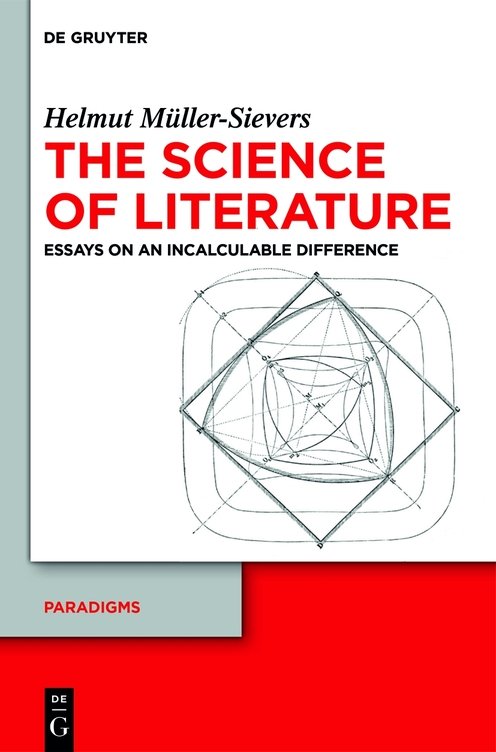
I want to thank Rdiger Campe and Paul Fleming for including this collection in Paradigms ; Paul also helped with corrections, comments, and athletic encouragement. David Wellbery has been my teacher, mentor, and friend since 1986, and his contribution means the world to me. Chadwick Truscott Smith provided the translations, Paul M. Babinski translated and researched the footnotes, and Joseph Haydt worked on the bibliography.
David E. Wellbery
Ist nicht die ganze Ewigkeit mein?
(Lessing)
I wish to celebrate Helmut Mller-Sievers as a critic but this is not an easy task because the concept of criticism as an intellectual activity with its own norms of excellence has become lost to us. Few individuals involved in academic literary study today would consider themselves critics, a job of work now consigned to the moribund medium of the newspaper. A reason for this development resides in the nature of critical discourse itself. Criticism unfolds toward appraisal and appreciation, and these activities can degenerate, as so often in the press, to bold declarations of good or mediocre. More deleterious to the standing of criticism even than simple-mindedness, however, is its congenital drift toward social exclusionism; the discriminations of value intrinsic to critical activity easily slide into distinctions in the pernicious inflection Bourdieu lent to that word. Thus, although it knew practitioners of undeniable brilliance, the literary criticism vigorously practiced during the middle decades of the previous century came, by the end of the 1960s, to look like the self-confirming ritual of a bored and boring coterie. This was swept away with the advent of theory, currently still the most common self-description among those institutionally charged with the study of literature. In a semantic development as irresistible as it is absurd that term has shed its genitive complement and assumed the allure of an autonomous exercise. It is now common to do theory without specifying an object domain to which the theory applies, rather like playing, but playing no musical instrument in particular. Clearly, such vacuity is unsustainable. In fact, there are already signs that some form of scientism (cognitive and evolutionary as key words) or technological wizardry (mining data as if it were buried gold) will replace it. Throughout the halls of university administration buildings jubilation is audible. In such a climate it may be not only difficult, but also important, to recall what the project of criticism is.
It is, first of all, an extraordinarily elusive project. This comes forcefully into view in interrelated essays by Stuart Hampshire and P. F. Strawson devoted to the logic of aesthetic appreciation. The upshot for the activity of criticism is clear. The critic, we might say, must enter into his task without bringing any antecedently fashioned conceptual tools along. Or rather he must invent his tools as he goes, and those tools will be unique to the singular occasion. Every just act of criticism is an improvisation.
The logical structure of appreciation described by Hampshire and Strawson was, of course, first brought to light in Kants Critique of the Power of Judgment (1790), which may be considered to have laid the philosophical groundwork of modern criticism. This fact alerts us to the larger historical truth that criticism is a child of the Enlightenment and thus inextricably entwined with the values of freedom, objective inquiry, and secular humanism. Indeed, it is one crucially important activity through which that universe of values is achieved, and therein resides the reason why the concept of criticism is worth holding on to. Readers of Kant, Hampshire, and Strawson can, however, acquire the impression that what criticism really comes down to is scattered acts of incidental appreciation. Thats not in itself off-target, of course, for whatever concept of criticism we develop, we shall certainly want to keep the moment of individual, improvisational encounter alive in it. But we also want to integrate the notion of criticism within an encompassing, collective project of inquiry, to invest it with an historical dimension, and to give its leading values a systematic theoretical grounding. This is precisely what happens in post-Kantian Idealism, the intellectual movement in which of this there can be no doubt modern literary study transcends occasional appraisal and acquires the contours of a discipline of inquiry. To recover the concept of criticism is to recover its idealist formulation.
We may take our orientation from the work of August Wilhelm Schlegel whose lectures on the theory of art, on ancient and modern drama, and on the history of romance literature proved foundational for the development of literary study in Europe and North America. On the account Schlegel develops in the Kunstlehre It is of crucial importance to understand the force of this claim. Art is conceived here not as empirically given, that is: not as a farrago of practices and objects with certain observable similarities. Rather, the principle Kunst soll sein conceives the totality of art as the response to a normative demand. And that demand does not come from some contingent, external source; it is a demand rooted in the very nature of human being. Representatives of our discipline today are typically embarrassed by such thoughts, but, on my view, to think of art as an irreducible and necessary aspect of the self-realization of the human is both profound and compelling. It is precisely in this context of argumentation that Schlegel introduces the notion, generally regarded today as risible, that art is autonomous. The term autonomous, however, does not mean, as is often fantasized, that art is a thing apart, sequestered, like some fetishized jewel, from the rest of human activity. It means, instead, that art, as a necessary dimension of human self-realization, gives itself its own laws just as (but in a different way than) moral experience does. Another way that Schlegel expresses this point is to say that art does not serve a finite end or purpose, but an infinite end or absolute purpose. It is important to note that the attribution of autonomy is not just an honorific gesture, a piece of applause. It frames a mode of explanation. A law of autonomy explains acts that exemplify it by the nature of the subject of this act and by it alone. Kant, of course, thought that the human subject conceived as rational will provides the ground of (explanation of) autonomous moral actions. One great discovery of post-Kantian idealism is that there are other human practices that satisfy the condition of autonomy, one of which is poetic self-articulation.
This thought frames Schlegels conception of the discipline of literary study and of the place of criticism within it. On Schlegels conception, literary study consists of three subfields: theory , history , and criticism ( Kritik ) . The theoretical component, which derives from and is guided by philosophical reflection, has already come into view in my remark on the founding principle: Kunst soll sein , and its task is to concretize that principle in terms of the concepts that flow from it. We may call this the construction of poetic expression, much in the sense in which we speak of geometric construction: the development of conceptual complexity through the unfolding of implications. Since all theory refers, finally, to human subjectivity and since opposition ( Entgegensetzung ) constitutes the principle form of subjective self-realization, then we may safely expect that the entire field of theoretical concepts generated will bear this structural trait. Broadly speaking, it will be dialectical. If the theoretical dimension of inquiry is the demonstration of the necessity of the poetic, then the elaboration of its actuality ( Wirklichkeit ) falls to the historical component. Thusly conceived, the history of poetic expression is not merely a collection of contingent empirical facts embedded in diverse causal networks. Rather, in order for some event a particular poetic product, let us say to count as a literary-historical fact, it must be relevantly related to the normative order of concepts. There is no literary history, in Schlegels view, where individual instances are not locatable with respect to a directionality (a meaningful development) deriving, finally, from the normative demand: Kunst soll sein . Theory and history stand, then, to one another not in the relationship of generalizing abstraction and particular empirical instance, but rather in the relation of concept and realization. History is the actuality of theoretical concepts, and theoretical concepts, in turn, are the necessary truths of history. History is the disciplined knowledge ( Wissenschaft ) of the becoming actual of everything that is practically necessary . Another way that Schlegel puts this is to say: In historical inquiry there is complete empiricism in the parts, but prevalence of the Idea regarding the whole. Theory, we might say metaphorically, is the compass of historical inquiry, the instrument of orientation without which it would be lost. And just as history is dependent upon theory for meaningful guidance, theory is dependent upon history for exemplification, whereby exemplification is not mere illustration of a known concept but the coming-intoappearance of previously unarticulated concepts. Hence the relationship between theory and history is one of mutual determination.
Font size:
Interval:
Bookmark:
Similar books «The Science of Literature»
Look at similar books to The Science of Literature. We have selected literature similar in name and meaning in the hope of providing readers with more options to find new, interesting, not yet read works.
Discussion, reviews of the book The Science of Literature and just readers' own opinions. Leave your comments, write what you think about the work, its meaning or the main characters. Specify what exactly you liked and what you didn't like, and why you think so.

